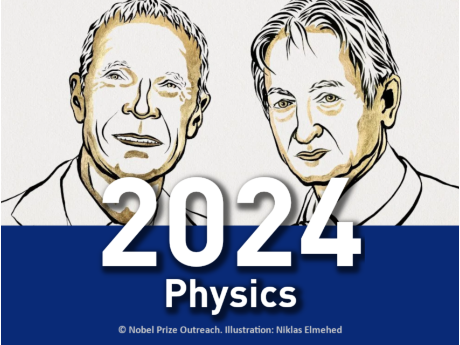From Data Quality to Nobel Discovery: How Validated Science Data Transform Molecular Biology
Mon Nov 04 11:10:17 CET 2024
Mon Nov 04 11:10:17 CET 2024 | Mon Nov 04 11:10:17 CET 2024 - Mon Nov 04 11:10:17 CET 2024

In a recognition of computational biology's power, this year's Nobel Prize in Physics celebrates the breakthrough solution to one of science's most persistent challenges: the protein folding problem. This achievement, made possible through the innovative combination of bioinformatics and artificial intelligence, demonstrates how validated, machine-readable data drives modern scientific discovery.
"What we're witnessing is the convergence of traditional physics with cutting-edge computational methods," says Prof.
Bohdan Schneider, Director of the Institute of Biotechnology of the Czech Academy of Sciences (IBT). "This breakthrough shows how quality data and innovative approaches can solve problems that were once thought
insurmountable.”
The Foundation of Discovery: Quality Data
At the heart of this scientific revolution lies the Protein Data Bank (PDB) and public sequence databases such as
GeneBank. These databases are distinguished by two crucial characteristics: expert curation and complete machine
readability. Unlike simple data repositories, the PDB's information undergoes rigorous validation by expert curators,
ensuring reliability for both human researchers and AI systems.
This dual approach – human expertise and machine accessibility – traces back to the pioneering scientists in the 1970s. One of these visionaries, Prof. Helen Berman championed the critical importance of data quality and standardization. She understood that sharing data wasn't enough – it had to be both validated and computationally accessible and this
foresight proved crucial for today's AI-driven discoveries.
In a recent Nature interview, Berman emphasized the importance of these resources: "Two things were important about the PDB data: they’re checked and validated by expert curators. The other thing is that the data are completely machine readable."
Beyond Traditional Physics
The Nobel Prize-winning breakthrough represents a paradigm shift in solving the protein folding problem. While
traditional physics-based approaches provided important insights, they could only partially address the challenge of
protein folding. The solution offered now to all by AlphaFold emerged from combining bioinformatics expertise with
artificial intelligence. AlphaFold’s hybrid approach, learning from the curated databases, achieved what neither quantum mechanics nor force field computing could accomplish: accurate prediction of protein structures at unprecedented speed and scale.

The Role of Quality Control
When AI systems learn from our databases, the accuracy of their predictions depends directly on the quality of our data. IBT therefore enforces excellence of data quality control, openness, and interoperability, now summarized under the term of FAIRness. As the IBT Director Schneider puts it: “Quality control in structural biology data isn't just good
practice – it's essential for innovation.”
Regarding the low volume and limited quality of RNA sequence and structure data, he adds: “The next frontier of
structural biology is prediction of RNA structures. We actively develop new methods to tackle this challenge.”
Looking Forward
As we celebrate these Nobel achievements, we're reminded that the future of molecular biology rests on the twin pillars of data quality and accessibility. Through ongoing collaborations with pioneers in the field, IBT researchers ensure that the next generation of discoveries builds upon a foundation of reliable, accessible information.
The journey from early database development to today's AI-powered discoveries shows how meticulous attention to data validation, combined with computational innovation, creates new possibilities in science.
